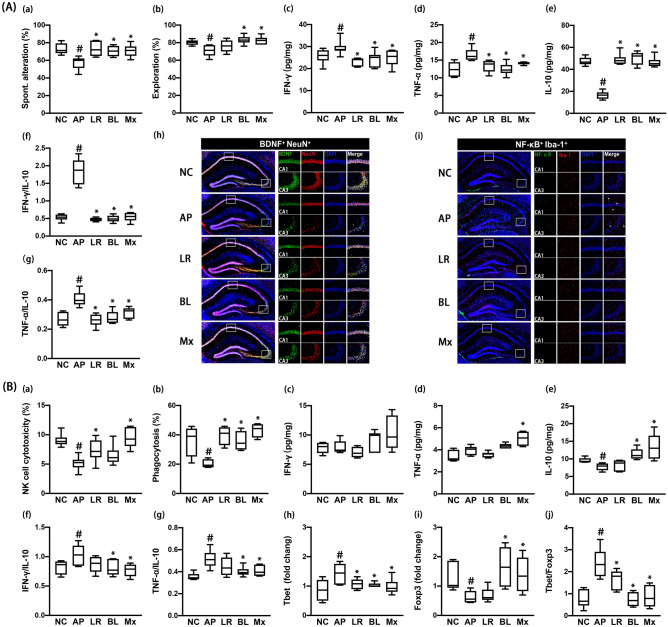Figure 3.
Effects of NK210 and NK219 on ampicillin-induced immune imbalance and cognitive impairment in mice. (A) Effects on cognitive impairment in the Y-maze (a) and NOR task (b). Effects on neuroinflammation: IFN-γ (c), TNF-α (d), IL-10 expression (e), IFN-γ to IL-10 expression ratio (f), TNF-α to IL-10 expression ratio (g), and BDNF+/NeuN+ (h) and NF-κB+/Iba1+ cell populations (i) in the hippocampus. (B) Effects on the immune imbalance: splenic NK cell cytotoxicity activities (a), peritoneal macrophage phagocytosis (b), IFN-γ (c), TNF-α (d), and IL-10 expression (e), IFN-γ to IL-10 expression ratio (f), TNF-α to IL-10 expression ratio (g), Tbet (h) and Foxp3 expression (i), and Tbet to Foxp3 expression ratio (j) in the spleen. Test agents (AP, ampicillin alone; LR, 1 × 109 CFU/mouse/day of NK210; BL, 1 × 109 CFU/mouse/day of NK219; Mx, 1 × 109 CFU/mouse/day of LR and BL [4:1] mix) were orally gavaged daily for 5 days after oral gavage of ampicillin. Normal control mice (NC) were treated with vehicle (saline) instead of test agents. Data values indicate mean ± SD (n = 8). #p < 0.05 versus NC group. *p < 0.05 versus AP group treated with ampicillin alone.

